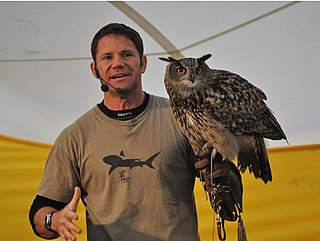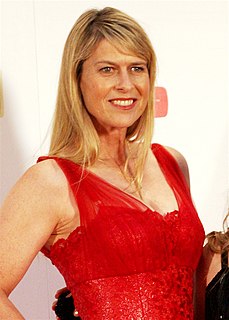A Quote by Steve Backshall
If the world's oceans have had nearly half a billion years with sharks as the apex predators, then the delicate balance of its food webs must rely on their presence in complex ways we cannot possibly predict.
Related Quotes
All indications are that three and a half billion years ago, Mars looked like Earth. It had lakes. It had rivers. It had river deltas. It had snow-capped peaks and puffy clouds and blue sky. Three and a half billion years ago, it was a happening place. The same time on Earth, that's when life started. So did life start on Mars?
The structure of the human brain is enormously complex. It contains about 10 billion nerve cells (neurons), which are interlinked in a vast network through 1,000 billion junctions (synapses). The whole brain can be divided into subsections, or sub-networks, which communicate with each other in a network fashion. All this results in intricate patterns of intertwined webs, networks of nesting within larger networks.
































